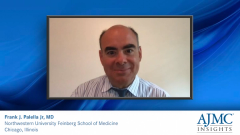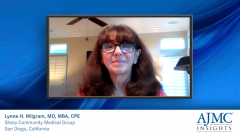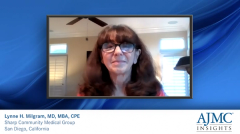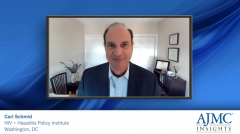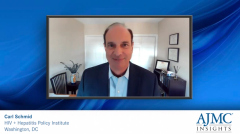
The Social Determinants Affecting PrEP Use and Access
Carl Schmid and Dr Milgram discusses the disparities in education and access to PrEP in the patient populations that need these medications the most.
Episodes in this series

Carl Schmid: We have a lot of work to do. I don’t think we’ve done enough outreach and communication to the communities that need PrEP [pre-exposure prophylaxis] most, such as Black gay men and Latinos. We have a lot more work to do. I disagree that there has been enough outreach to these communities. There’s a lack of education, health care access, and payer sources. When they have payers, there are always hurdles to get through. PrEP is supposed to be free, with no cost sharing if you have private insurance, but we’re still finding a lot of payers and private insurance companies charging out-of-pocket costs for PrEP or for medical tests, medical visits, or laboratory tests. It creates additional hurdles.
Health care access is already difficult for certain populations and even harder for others. These additional barriers make it harder. Providers are the ones who have to prescribe PrEP, and they aren’t always discussing it with their patients. Particularly in the South, we still see a lot of stigma regarding HIV. And we haven’t had a concerted national campaign to go to the communities most impacted. Those are some of the reasons why I feel that those communities aren’t accessing PrEP as they should be.
There are a lot of things we can do to overcome the barriers to PrEP. One thing I’d like to see is a national PrEP campaign, a national PrEP program that gives grants to the communities most impacted for educational purposes. But we also need to give grants to providers and educate them on the best practices of how to address these issues and prescribe PrEP and what’s needed. There are great CDC [Centers for Disease Control and Prevention] guidelines online, and providers can access them. We also need to make sure payers aren’t implementing barriers as well.
I’d like to see a national PrEP grant program run out of the CDC to promote PrEP and to give grants to community health centers and the Ryan White clinics to help pay for medications and laboratory services, particularly for people who are uninsured, but it also helps for the underinsured. [We need] to get people aware of PrEP, and we need a national effort. Those are some of the things I’m working on with others in the HIV community.
Lynne H. Milgram, MD, MBA, CPE: Health equality is extraordinarily important. Any time that we can address the health inequalities, we should. We haven’t done anything in this area to address the potential health inequalities. We started looking at how we could when we were rolling out the COVID-19 vaccinations, and we used community resources in vulnerable areas. We did such a good job that those areas had greater rates of vaccination than some of our areas where patients had to go to clinics.
It’s possible to roll out a strategy for your more vulnerable communities. An oral strategy is possible. Certainly, you can dispense pills at the same time in the same locations, whether they’re churches, schools, or community resources. But here’s where the long-acting injectable preparations might be of value. Just as we treat patients with long-acting injectables who have mental disorders or behavioral health disorders, it works better in community clinics or in any areas where they can go without shame and without discomfort in their communities. But we haven’t done anything. Could we? Yes, we could. It’s an area where long-acting injectables would probably be very beneficial.
[The disparities and inequities] start with the patient not having access to health care. Although that’s not the case for us, it’s not having access to health care or not knowing where [to go]. There are free clinics, especially in this disease area, but people don’t know or don’t have the education. Having that stigma and that label is another factor. Not understanding, education, and feeling invincible are factors, and yet they’re so vulnerable. It’s a lot of misinformation and maybe not even knowing where to go for treatment. That’s the biggest thing.
I have providers in vulnerable areas, and they treat their population. They’re from their population. But there might still be areas where there’s prejudice and patients don’t feel comfortable. They may not even speak the same language. There may be a language barrier or cultural barriers. Everything that exists in racial disparities and health inequalities exists in this disease state, and probably even more so.
Transcript edited for clarity.
Newsletter
Stay ahead of policy, cost, and value—subscribe to AJMC for expert insights at the intersection of clinical care and health economics.
